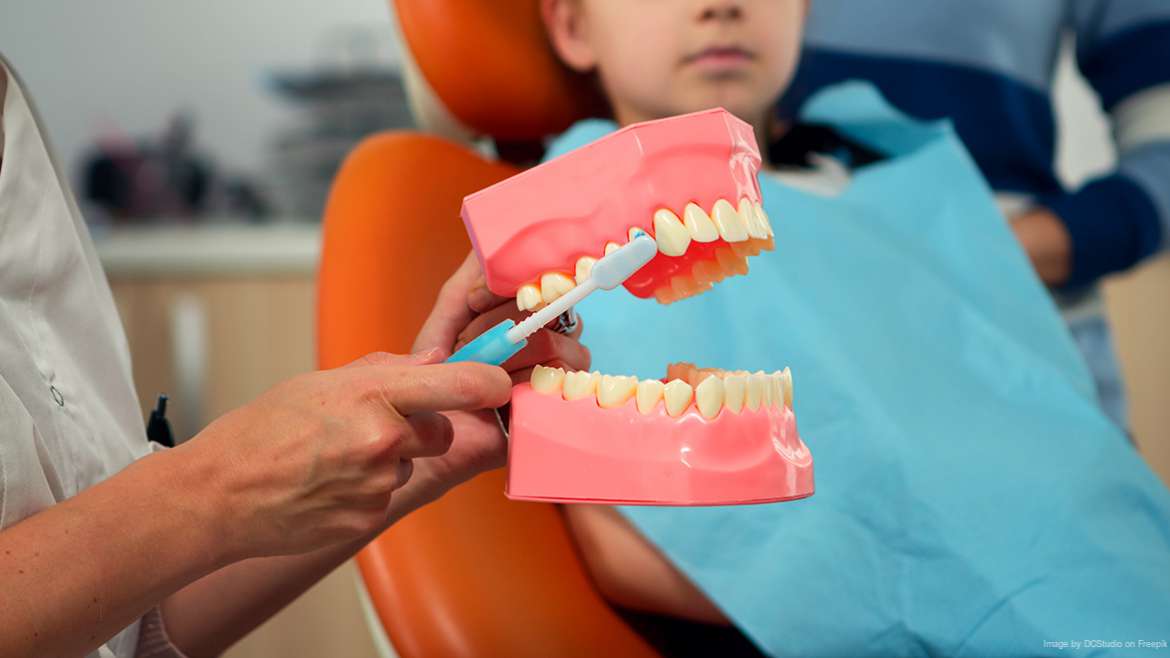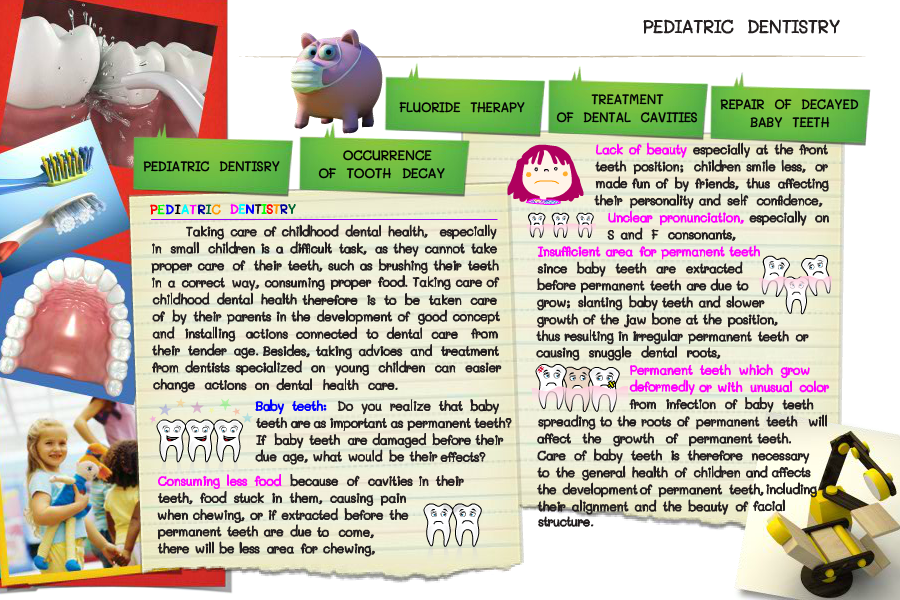
Taking care of childhood dental health, especially In small children is a difficult task, as they cannot take proper care of their teeth, such as brushing their teeth in a correct way, consuming proper food. Taking care of childhood dental health therefore is to be taken care
of by their parents in the development of good concept and installing actions connected to dental care from their tender age. Besides, taking advices and treatment from dentists specialised on young children can easier change actions on dental health care.
Baby teeth: Do you realise that baby teeth are as important as permanent teeth?
If baby teeth are damaged before their due age, what would be their effects?
Consuming less food because of cavities In their teeth, food stuck in them, causing pain
when chewing, or if extracted before the permanent teeth are due to come, there will be less area for chewing,
Lack of beauty especially at the front teeth position; children smile less, or made fun of by friends, thus affecting their personality and self confidence, Unclear pronunciation, especially on S and F consonants, Insufficient area for permanent teeth since baby teeth are extracted
before permanent teeth are due to grow; slanting baby teeth and slower growth of the jaw bone at the position, thus resulting in irregular permanent teeth or causing snuggle dental roots,
Permanent teeth which grow deformedly or with unusual colour from infection of baby teeth spreading to the roots of permanent teeth will affect the growth of permanent teeth. Care of baby teeth is therefore necessary to the general health of children and affects the development of permanent teeth, including their alignment and the beauty of facial structure.
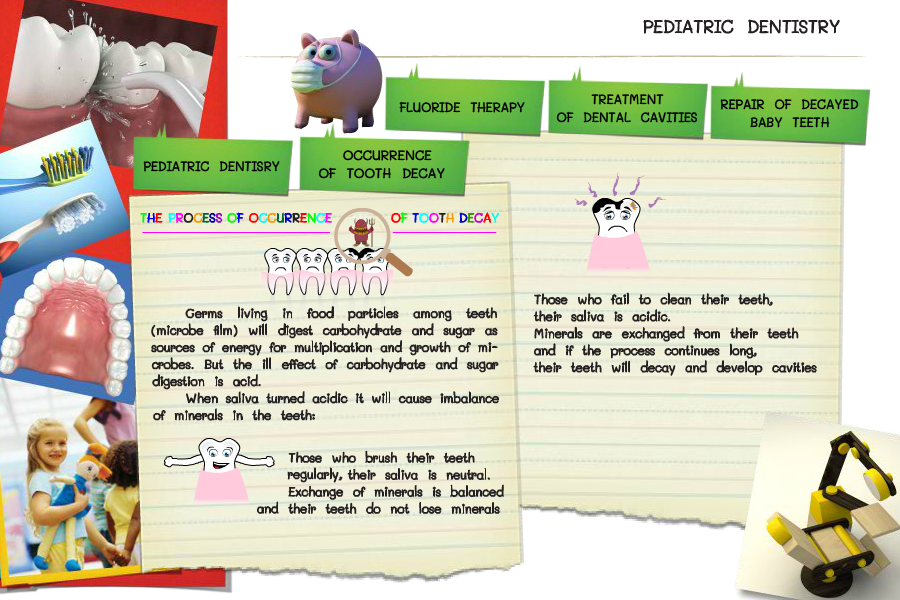
Germs living in food particles among teeth (microbe film) will digest carbohydrate and sugar as sources of energy for multiplication and growth of microbes. But the ill effect of carbohydrate and sugar digestion is acid.
When saliva turned acidic it will cause imbalance of minerals in the teeth:
Those who brush their teeth regularly, their saliva is neutral.
Exchange of minerals is balanced and their teeth do not lose minerals
Those who fail to clean their teeth, their saliva is acidic.
Minerals are exchanged from their teeth and if the process continues long. their teeth will decay and develop cavities
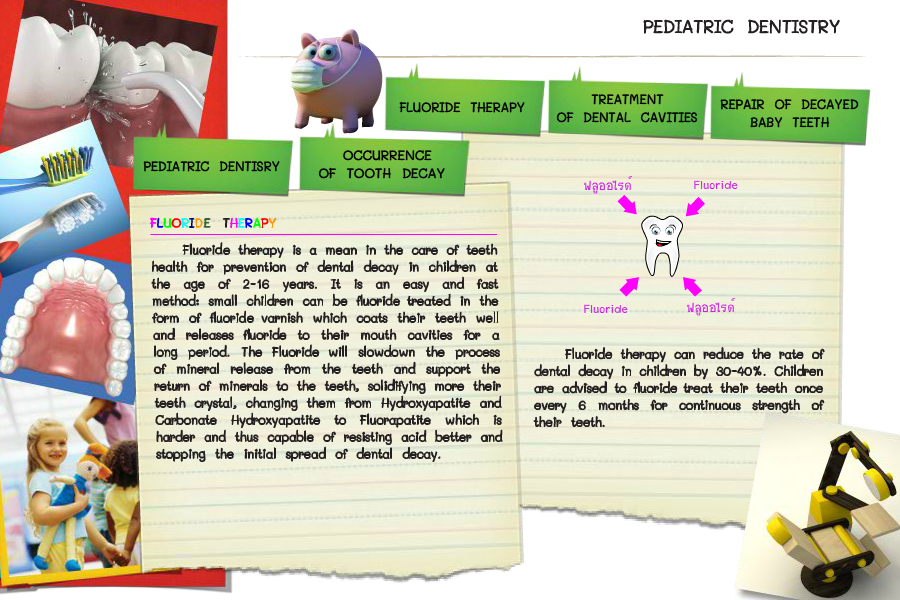
Fluoride therapy is a mean in the care of teeth health for prevention of dental decay in children at the age of 2-16 years. It is an easy and fast method: small children can be fluoride treated in the form of fluoride varnish which coats their teeth well
and releases fluoride to their mouth cavities for long period. The Fluoride will slow down the process of mineral release from the teeth and support the return of minerals to the teeth, solidifying more their teeth crystal, changing them from Hydroxyapatite and Carbonate Hydroxyapatite to fluorapatite which harder and thus capable of resisting acid better and stopping the initial spread of dental decay.
Fluoride therapy can reduce the rate of dental decay in children by 30-40%. Children are advised to fluoride treat their teeth once every 6 months for continuous strength of their teeth.
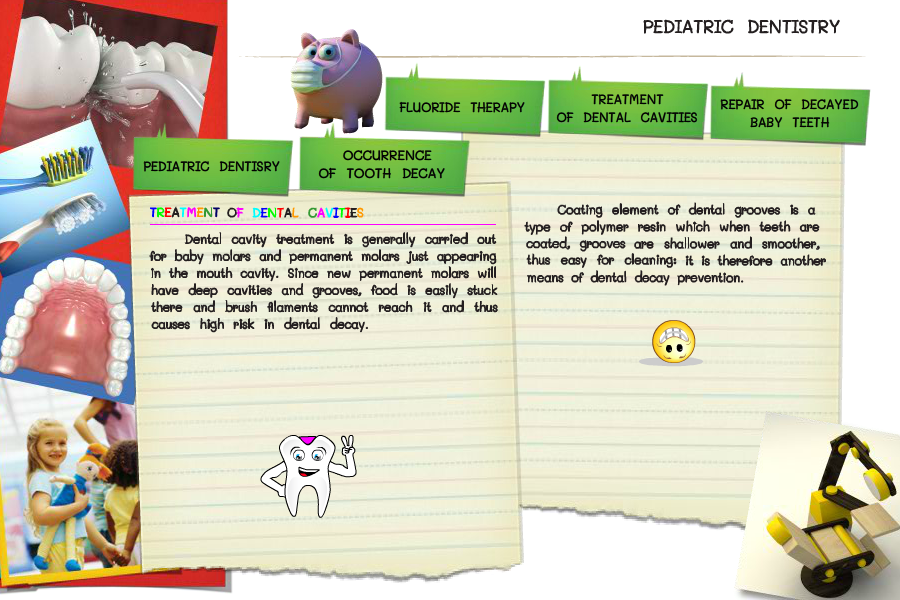
Dental cavity treatment is generally carried out for baby molars and permanent molars just appearing In the mouth cavity. Since new permanent molars will have deep cavities and grooves, food is easily stuck there and brush filaments cannot reach it and thus causes high risk in dental decay.
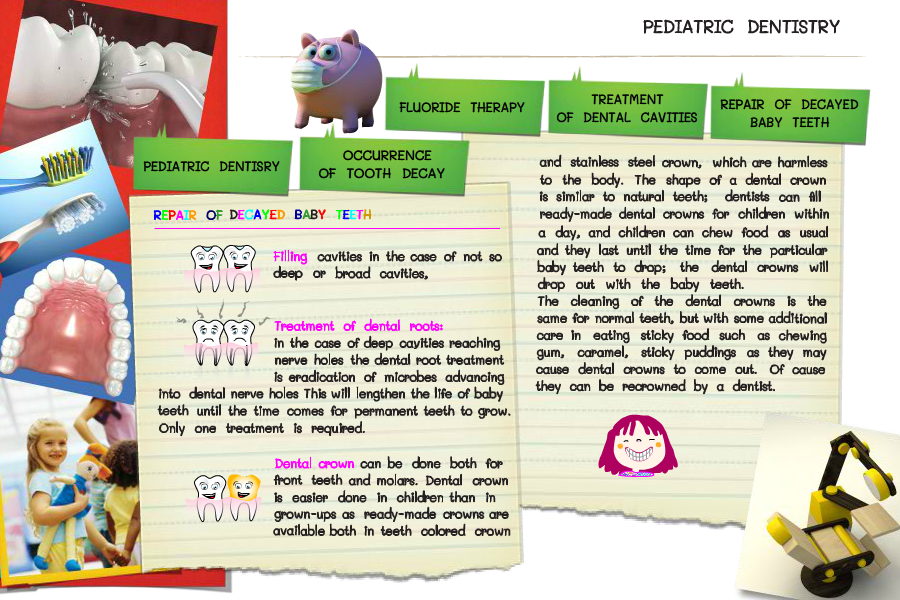
Filling cavities in the case of not so deep or broad cavities,
Treatment of dental roots:
in the case of deep cavities reaching nerve holes the dental poot treatment is eradication of microbes advancing into dental nerve holes This will lengthen the life of baby teeth until the time comes for permanent teeth to grow.
Only one treatment is required.
Dental crown can be done both for front teeth and molars. Dental crown is easier done in children than in grown-ups as ready-made crowns are available both in teeth colored crown and stainless steel crown, which are harmless to the body. The shape of a dental crown is similar to natural teeth; dentists can all ready-made dental crowns for children within a day, and children can chew food as usual and they last until the time for the particular baby teeth to drop; the dental crowns will drop out with the baby teeth.
The cleaning of the dental crowns is the same for normal teeth, but with some additional care in eating sticky food such as chewing gum, caramel, sticky puddings as they may cause dental crowns to come out. Of cause they can be recrowned by a dentist.

